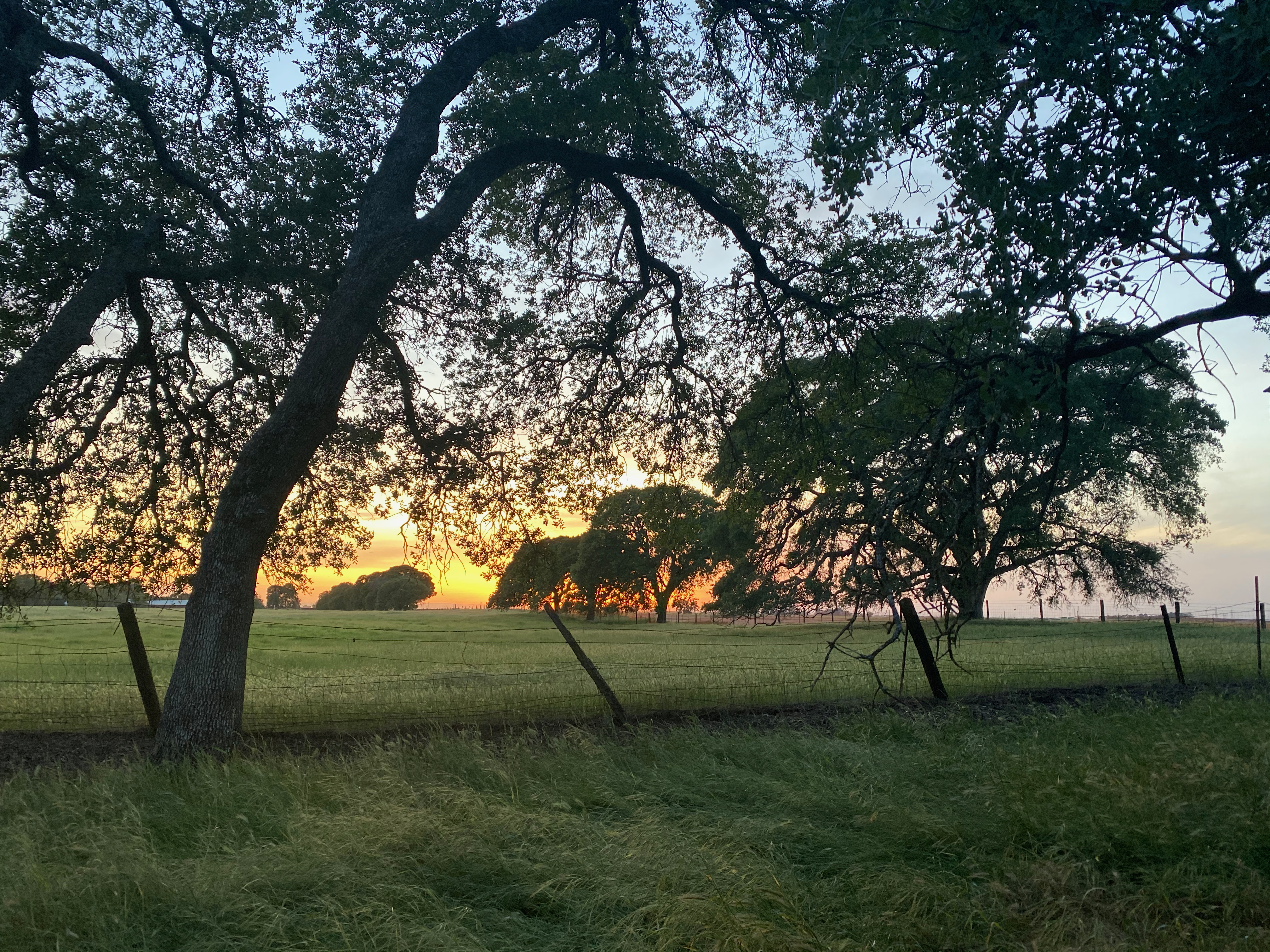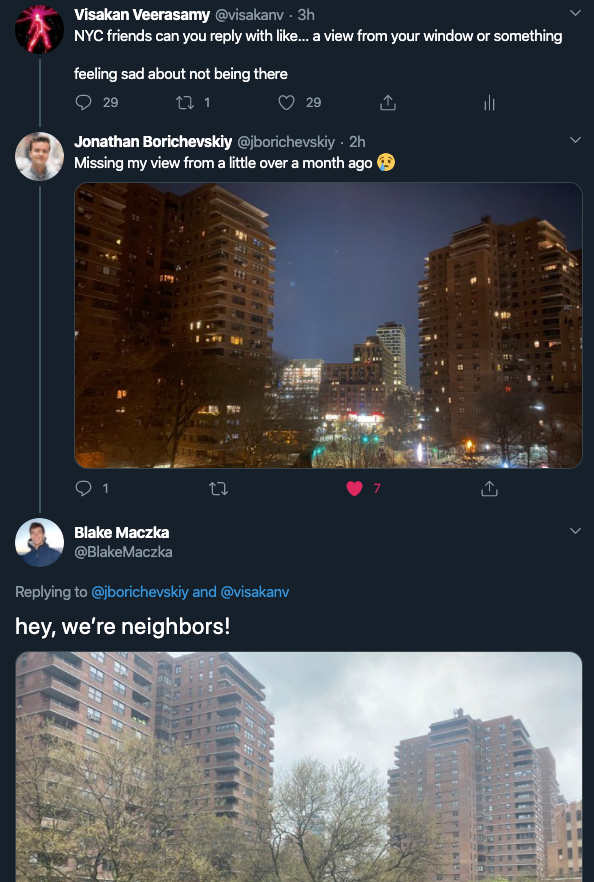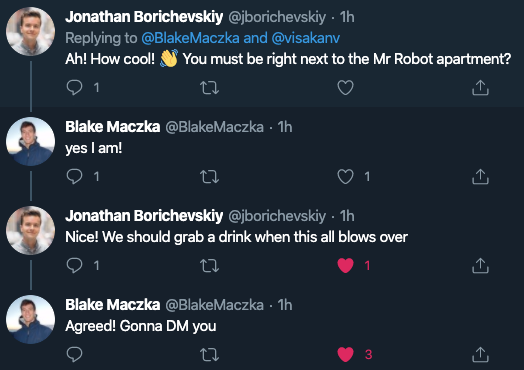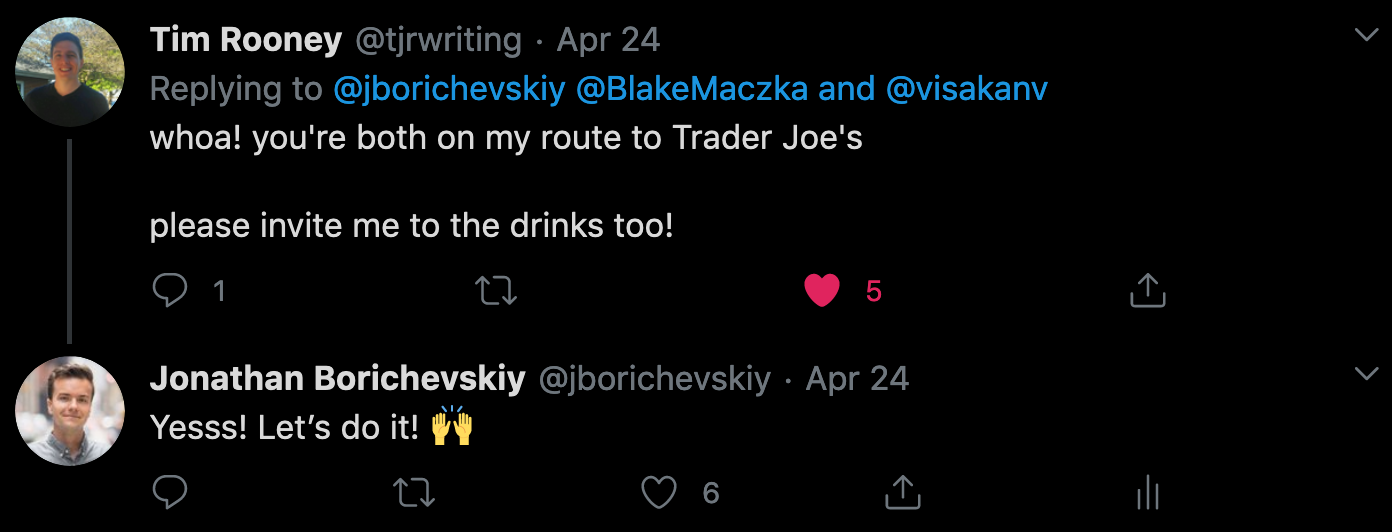Have I become dumber since moving away from my roommates?
Jonathan’s Patch Notes :: version 03
These are my weekly Patch Notes – a log of the mental model updates I’m making and a braindump of things I’m leaning, building, or thinking about. Subscribe on Substack here.
In this release:

Have I become dumber since moving away from my roommates? #
Preface: this is a fuzzy, hypothetical idea I’m trying to articulate and I appreciate any and all feedback on my attempt. Much inspiration comes from Stian’s Networked Thought and Learning newsletter and the ideas discussed therein.
First off to answer the question, probably yes, as they did a wonderful job reigning in my impulsive behavior and keeping me healthy and happy.
But I’m talking about something different: for the past few years I’ve been living with and near some incredibly smart, motivated, and ambitious friends. Countless insightful conversations, amazing ideation sessions, arguments, and delicious dinners were had. My chain of reasoning:
-
over the months/years, we developed shared mental models through mutual experiences and conversations about problems we encountered or issues we were thinking about
-
we did so in close physical proximity to each other; which inevitably meant an extremely high level of interpersonal communication: facial expressions, body language, gaze direction, hand gestures, pens & pencils, shared music, etc
-
between the massive amount of time we shared and the shared tools for thought at our disposal, one might argue we were near the upper bound of the potential level of communication between people in a shared physical space
-
related, as of yet unbacked claim: I do not believe this peak communication capacity is only achievable through physical in-person interactions
-
-
since the virus, we have switched to video and voice calls. No doubt it has massively reduced our communication bandwidth relative to the level in which we developed those shared ideas and frameworks in
- tangentially related: substack post: L. M. Sacasas: A Theory of Zoom Fatigue:
When video conferencing … we are paying attention to ourselves in an odd way. Thanks to my image on the screen, I’m conscious of myself not only from within but also from without. [It] amounts to a persistent expenditure of social and cognitive labor as I inadvertently mind my image as well as the images of the other participants.
-
according to the wikipedia:extended mind thesis, “the mind does not exclusively reside in the brain or even the body, but extends into the physical world”. This refers primarily to extending it via inanimate objects such as pens, notebooks, and computers – not necessarily other human beings
-
wikipedia: distributed cognition refers to the idea that much of our “cognition is off-loaded into the environment through social and technological means” – in other words, the better we are at presenting problems and posing questions, the more we can take advantage of the “collective intelligence” of the human population, in the abstract sense
- opinion: for the past 20,000 or so years it’s mostly been intelligence gathered, maintained, and passed down by an individual’s local tribe and the ideas shared between nearby tribes, in addition to oral history and tradition. Over the past few decades we’ve extended this to 1.1+ billion people (wrt English-speaking population on the internet) via the internet. wikipedia: Internet users by language.
hypothesis: switching from in-person interactions to digital ones with a specific group of people I established shared mental models with means I can access fewer of those models in my own brain due to the newly-constrained levels of communication.
Further questions and avenues of exploration this raises for me:
-
is there a “type” of cognition which refers specifically to this layer? It seems it would fall in-between my own, immediate extended environment and the collective intelligence as a whole?
-
I’m looking for a word to describe the collection of insights I collaboratively built with a specific group of people in one shared environment over a specified period of time.
-
Dmitrii Gerasimov suggested the terms “shared cognition” and “mutual cognition”, both of which sound like appropriate names for this
-
-
how does “shared cognition” behave when a company is started in-person, and moved to a distributed structure? How about the reverse?
-
how might we systematically move such insights out of this ephemeral, largely cue-driven structure into something more concrete?
-
if a group of people were to set out to develop such a shared, solidified context in a “remote-first” fashion, what would the structure for it look like?
-
assume a data structure that needs read-and-write capability
-
consider major religious texts as successful attempts at collaboratively writing and distributing collections of shared knowledge and references
-
-
how might we measure or benchmark the level (score, degree, rate) of interpersonal communication to compare various forms of it?
-
what implications might this have for the way we learn in cohorts that split afterwards (the way schooling has been done up until now)? What about relative to new online approaches?
-
I distinctly remember a reference I read somewhere to the idea of “losing” access to a portion of our brains devoted to understanding and communicating with a close person. When that person dies, we lose access to a portion of our own brain. Top guesses: Sam Harris, Norman Doidge, or Oliver Sacks. If you remember please let me know.
Goals and values in Readwise #
This week I imported my list of Values, Goals, and open Questions as highlights into Readwise.
I wish I had done it months ago. I’ve been finding a helpful, positive addition to the daily review process because along with the things I’m reading and thinking about, I’m being reminded of much larger, overarching questions and goals. Where as highlights might be the what, this new batch is more the why.
- related podcast ep: Designing and Developing New Tools For Thought with Andy Matuschak and roam: Stian’s notes on it.
Why I love Twitter reason number 1548 #
people sometimes ask me how I build the nerd graph and introduce friends to each other. sometimes it's really this simple pic.twitter.com/GyuYRePdMv
— Visakan Veerasamy (@visakanv) April 24, 2020



This touches on a topic I’ve been meaning to write much more about … sometime soon but the core of the idea is I love twitter, I love the internet, and I love that this stuff can happen on it.
Blog Club: The Curse of Xanadu #
-
@posobin: Blog club - open invite
This week’s session was a delight. Although the article was rather long and not everyone had a chance to finish it, I felt the discussion was phenomenal. Ideas/questions discussed: Xanadu and its possible history had they started with an MVP, local brain vs global brain, knowing about something vs remembering it, total recall vs selective forgetting and the balance between the two, flaws of voice-to-text transcription, extended mind, our note-taking strategies, and of course brain-computer interfaces. Thank you to everyone who made it possible.
The world is changing faster #
If I had a dollar every time I’ve heard that phrase… yet I have never lived through anything which has really shown me the truth of that statement. People talk a lot about the shift in the United States following 9 /11. I was too young so everything I know about that is from other people.
Similar to cell phones: people say all of a sudden everyone had one: you could reach a person anywhere, anytime. Again, largely grew up with that, so I have a hard time imagining any other way I would survive. I imagine television, appearance of the 24-hour news cycle, and the internet were also fascinating changes I wish I could’ve seen the before and after of.
But we’re in the middle of a major change right now. In which direction? Hard to predict, and anything I say is pretty much a guess. I’d garner more remote work, more screening checkpoints in public places, more nationalism, and a ridiculous increase in innovative online experiences, platforms, and ways of spending and earning money digitally.
What about future changes? Climate change, no doubt. Starlink launching potentially up to 42,000 satellites and bringing the entire planet online (wikipedia:Starlink#2018 - 2019). I’d guess the rise of wikipedia:ubiquitous computing is going to blow my mind too. Accessible human genetic engineering, though I know much less about that.
None of these things are terribly far away. They’re also the sorts of shifts that make future ones come even faster, in an ever-tightening feedback loop. The first that happens will increase both the demand for as well as the probability of the subsequent ones happening.
I think this accelerated pace of change is here to stay, and we’re gonna have two options: lose our minds or adapt.
Other things #
Hacker News: Build a real-time Twitter clone with LiveView and Phoenix 1.5
- A great walkthrough of why this language is freaking awesome.
My latest late night writing strategy:
— Jon Bo (@jondotbo) April 25, 2020
Mute all notifications
Turn on some good music
Full-screen writing app on one monitor
Turn on Our Planet on the other, muted
It's a *delight*. Provides the perfect stimulation without sucking away attention
Life seems to be going reasonably well right now. Love you all.